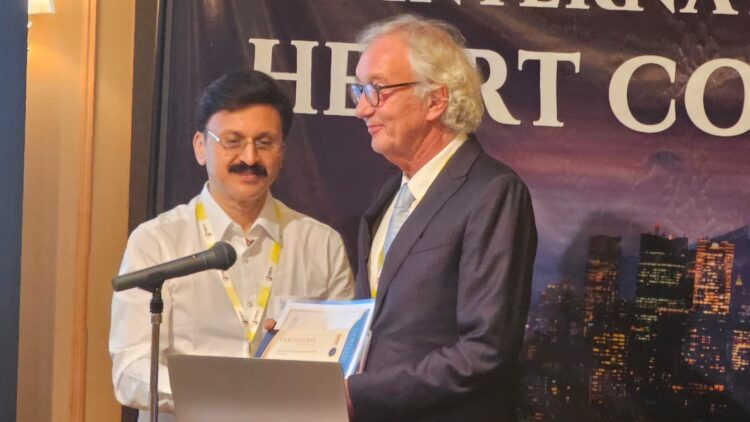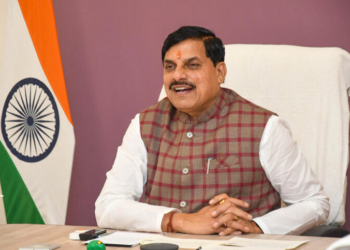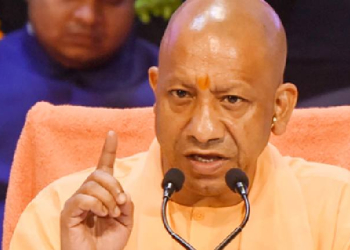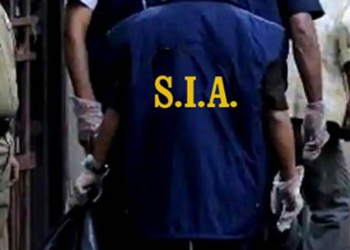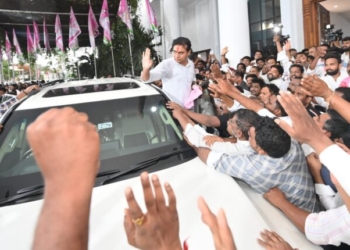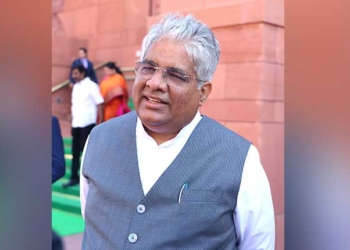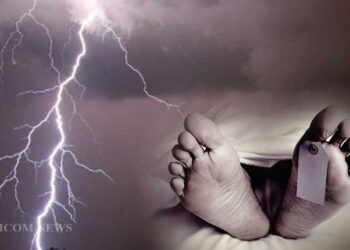Chandigarh:Timely intervention, cardiopulmonary resuscitation, meticulous decision making and implementation with wholehearted support of cabin crew were the keys for the survival of a passenger who had a massive heart attack while on a long-haul international flight bound for Delhi, a cardiovascular surgeon said on Saturday.
He said such incidents of fatal heart attacks have increased after the Covid-19 pandemic.
Chandigarh-based cardiovascular surgeon Dr Deepak Puri told IANS people must also know difference between heart attack and cardiac arrest as every heart attack may not cause cardiac arrest but if there is a cardiac arrest the patient will die, if cardiac resuscitation is not initiated immediately and continued till the artery can be opened up.
“Nowadays the young have sudden cardiac arrest and die,” warned Dr Puri, the founder Chairman of a global trust started in 2011 to spread updates on comprehensive cost-effective management of heart diseases.
As per studies, 1,000 lives are lost annually from cardiac arrest in commercial aircraft.
Passenger Dinesh Bharatiya, 57, has a history of diabetes and Covid-19 as well.
While travelling from Tokyo to Delhi in a non-stop Air India flight on Friday, he crashed after suffering a massive heart attack and was medically dead with no pulse, no heartbeat and no brain circulation with the plane flying over the sea.
“His anterior descending artery supplying blood to the left ventricle of the heart was found 100 per cent blocked on angiography on reaching Kolkata,” he explained.
“The patient luckily belongs to Kolkata. I told airlines to make an emergency landing in Kolkata and keep the ambulance ready on landing. Before we landed, I was resuscitating the patient for over five hours with negligible medical back up.
“On landing in Kolkata, we transferred the patient to a heart hospital where an angiography team was kept ready and his blocked coronary artery LAD was immediately opened.”
After a miraculous escape, the patient is now safe and his brain and kidneys are fully functioning because of timely cardiopulmonary resuscitation.
The cardiovascular surgeon told IANS that most people are not aware and may not believe that how a passenger can be revived after his heart stopped beating on a flight with bare minimum medical aid available.
“We immediately laid the patient on the floor of the aircraft and started a cardiac message at a rate of 100 per minute to maintain the circulation to the brain and kidney and other vital organs. This has to be done continuously till the heart starts beating again with two breaths being given after every 30 compressions.
“If the cardiopulmonary resuscitation is conducted meticulously only then the patient will survive and his brain and kidneys will remain functional as happened in this patient.
“The blocked heart artery has to be opened up immediately and the first hour is the golden hour which was not possible as we were in air over the sea. Chances of death increase if there is delay and the heart muscle dies permanently if the artery cannot be opened within six to eight hours.”
He explained that “if the cardiac message is not initiated immediately permanent brain death occurs in three to five minutes. Time is very crucial in this situation. Everyone must be made aware about this so that many other lives can be saved.”
While in emergency, the airlines had two options — either emergency landing in China, which was nearest by two hours, or Kolkata that was five hours away.
“We thought we could arrange transportation and angioplasty more easily in Kolkata, so chose this but had added responsibility of sustaining the patient for five hours which was three hours more far from China. I took the gamble and it paid off,” an elated Dr Puri, who hails from Shimla, said.
He said the patient might not have survived “if we had continued to fly to Delhi which would have taken another two hours or if we had diverted it to China as we were not aware about his medical insurance cover and whether we could arrange immediate angiography and stenting as quickly as we did in Kolkata”.
The surgeon, who believes Valentine’s Day is not just about romance with the partner but also a day that reminds the importance of self-love, recently made a short movie on cardiovascular care that got nominated for two international film festivals and was also awarded as the Best Director.
(IANS)



